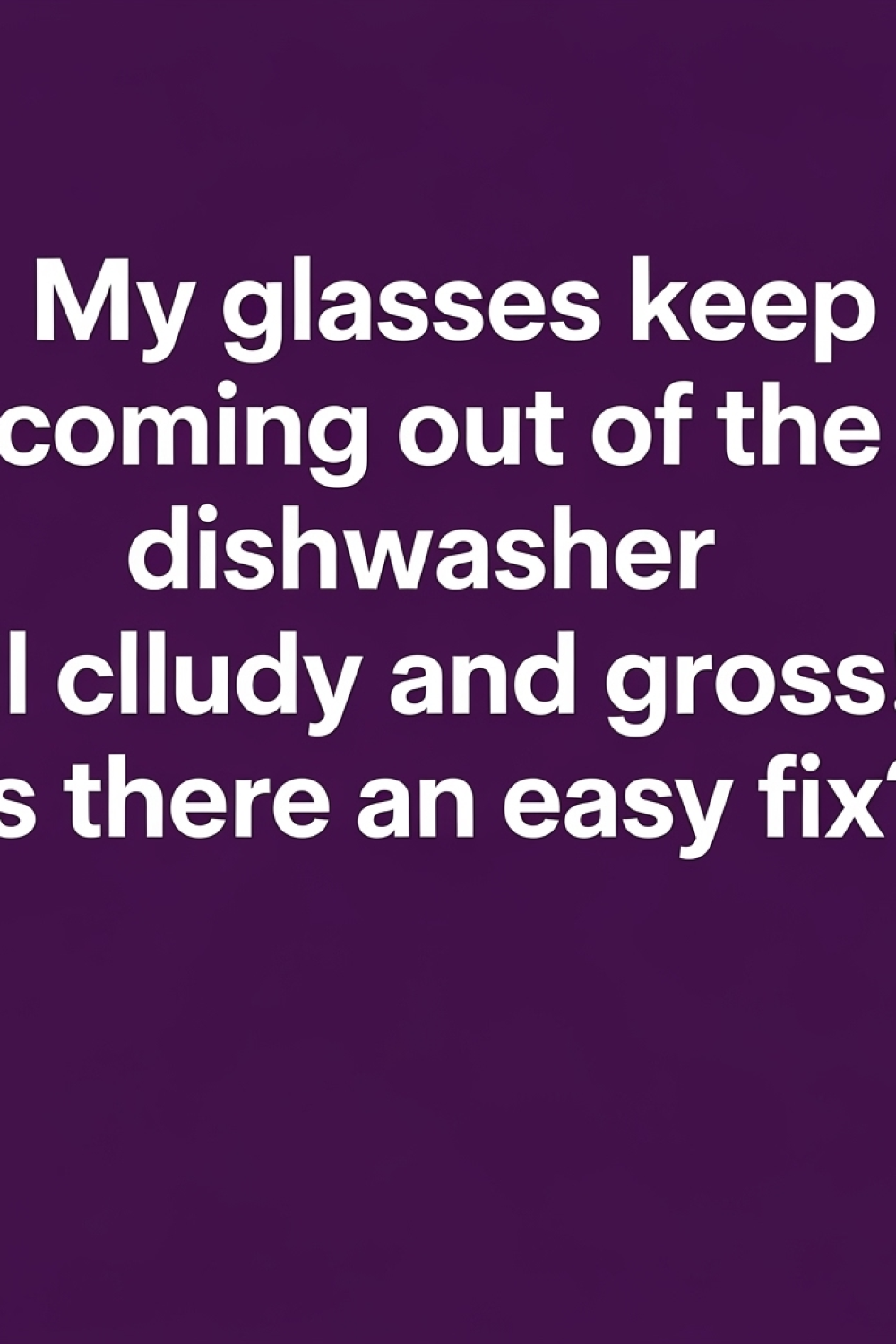Want to save this recipe?
Enter your email below and we’ll send the recipe straight to your inbox!
Introduction
Opening your dishwasher to find glasses covered in a cloudy film is one of those small but persistent frustrations of daily life. You’ve already done the right thing by using your dishwasher instead of hand washing, yet somehow your glassware comes out looking worse than before. This cloudy residue isn’t just unappealing—it can make your clean glasses look dirty and detract from your dining experience. The good news? You don’t need to resort to hand scrubbing or expensive specialty products to solve this common problem. Two simple ingredients you likely already have at home can restore the crystal-clear shine to your clouded glassware.
The Solution
The cloudy film on your glasses is typically caused by a combination of mineral deposits (especially in hard water areas), detergent buildup, and sometimes etching from harsh detergents. Here’s how to tackle the problem using just vinegar and baking soda—two powerhouse cleaning ingredients that work wonders on glassware.
Method 1: Vinegar Rinse for Regular Maintenance
- Empty your dishwasher completely. Remove all dishes, utensils, and the dish racks if possible.
- Check the drain at the bottom of your dishwasher and remove any food particles or debris that might be clogging it.
- Place a dishwasher-safe cup or bowl filled with 1 cup of white vinegar on the top rack of your empty dishwasher.
- Run a hot water cycle without detergent. Select the hottest water setting available but skip the drying cycle.
- The vinegar will disperse throughout the dishwasher during the cycle, breaking down any mineral deposits and soap scum that cause cloudiness.
- Once the cycle is complete, your dishwasher will be cleaner and better prepared to get your glasses sparkling again.
- Reload your cloudy glasses in the dishwasher, ensuring they’re properly spaced.
- Run a normal cycle with your regular detergent.
- Check the results – most glasses should now appear clearer. For heavily clouded glasses, you may need to repeat the process or try Method 2.
Method 2: Baking Soda Paste for Stubborn Cloudiness
If some glasses remain cloudy after the vinegar rinse method, try this more targeted approach:
- Mix a paste using 2 tablespoons of baking soda with 1 tablespoon of water in a small bowl.
- Apply the paste gently to each cloudy glass using a soft cloth or sponge. Focus on the cloudy areas.
- Let it sit for 5-10 minutes to allow the baking soda to work on the mineral deposits.
- Rinse thoroughly with warm water.
- Dry immediately with a lint-free cloth to prevent water spots from forming.
Method 3: Combination Approach for Severe Cases
For glasses that have substantial buildup or have been cloudy for a long time:
- Soak the glasses in a solution of equal parts white vinegar and warm water for 30 minutes.
- Remove from the soak and apply the baking soda paste as described in Method 2.
- Rinse thoroughly and dry with a lint-free cloth.
- Run the vinegar cycle in your dishwasher as described in Method 1 to prevent future cloudiness.
Tips and Considerations
- Water Temperature Matters: Always use hot water cycles for cleaning glasses in the dishwasher as it helps dissolve mineral deposits more effectively.
- Dishwasher Detergent Selection: Consider switching to a detergent formulated for hard water if that’s an issue in your area. Some eco-friendly detergents may not contain phosphates, which can result in more cloudy glassware in hard water regions.
- Rinse Aid Usage: Adding a rinse aid to your dishwasher can significantly reduce cloudiness. You can use commercial products or make your own by filling the rinse aid compartment with white vinegar.
- Water Softener Benefits: If hard water is a persistent problem in your home, consider installing a water softener system to reduce mineral content before it reaches your dishwasher.
- Prevention Is Key: To minimize future cloudiness, always rinse glasses before loading them in the dishwasher to remove acidic residues (like wine or juice) that can contribute to etching.
- Know When It’s Permanent: If your glasses have been cloudy for years, they may be permanently etched by the dishwasher detergent or hard water. In this case, no amount of cleaning will restore them completely.
- Safety Note: Never mix vinegar with bleach or commercial dishwasher detergents containing bleach, as this can create toxic chlorine gas.
- Delicate Glassware Caution: For crystal or antique glassware, test these methods on a less valuable piece first, or consider hand washing instead.
Conclusion
Cloudy glasses are a common household annoyance, but they don’t require costly solutions or hours of scrubbing. With just vinegar and baking soda—two inexpensive pantry staples—you can restore the sparkle to your glassware and keep your dishwasher functioning at its best. This simple maintenance routine not only improves the appearance of your glasses but also extends their usable life. Next time you host a dinner party or simply enjoy a drink at home, you’ll appreciate the crystal-clear results these simple ingredients provide. Cheers to sparkling glasses with minimal effort!

